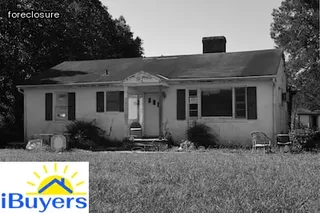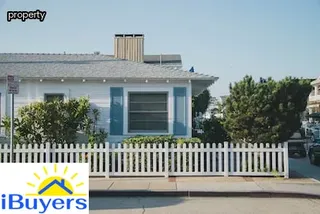The foreclosure process in New York can be complex and lengthy. Foreclosure laws in the state are primarily governed by the Real Property Actions and Proceedings Law (RPAPL).
All foreclosures must go through court proceedings and a judge must grant a judgment of foreclosure before the property can be sold at auction. The RPAPL also outlines specific procedures for lenders to follow when initiating the foreclosure process such as providing written notice to borrowers, including an explanation of their rights and options.
Borrowers have a certain amount of time from when they receive their notice to respond or seek legal counsel. Additionally, there are certain circumstances where homeowners may be able to delay or stop the foreclosure process entirely, such as filing for bankruptcy or negotiating with lenders.
It is important that homeowners understand their rights and obligations under New York's foreclosure laws so they can make informed decisions throughout the process.

The foreclosure process in New York is a complicated one, and understanding it is essential to ensuring that homeowners are able to protect their rights. The process begins with the lender sending a delinquent notice to the homeowner.
This letter informs the homeowner that they are behind on payments and have a certain time period to make up the difference or face foreclosure proceedings. If the homeowner does not pay off the debt in full, then the lender will file a complaint with court and begin legal action against them.
From there, a summons and complaint will be served to the homeowner, who must appear in court for a hearing. Afterward, if the judge orders foreclosure, then an auction date is set for the property to be sold at public auction.
Lastly, following the sale of the property at auction, a deed of confirmation would be issued by court confirming that ownership has been transferred from the former homeowner to new owner. Throughout this entire process it usually takes around 4-12 months before all steps have been completed and ownership is officially transferred.
Preparing for a foreclosure case in New York can be complicated and time-consuming. It is important to understand the entire process of foreclosure, as well as having a good understanding of your legal rights.
Start by researching the laws and regulations pertaining to foreclosure in the state of New York. Talk to a lawyer or housing counselor who can provide you with advice on how best to approach your particular situation.
Also, make sure you have all financial documentation related to your home and mortgage readily available. This includes any payment history, loan agreements and other records that will help you in court or when negotiating with your lender.
Finally, it is crucial to keep detailed records of all communication with your lender so that if any issues arise, you have proof of what was said or agreed upon. Knowing how to prepare for a foreclosure case in New York is key to getting through this difficult process successfully.

A Notice of Default (NOD) is an important document issued by a lender when a borrower has failed to make their mortgage payments and is in breach of contract. This document officially notifies the homeowner that they are in default and must take action to remedy the situation, such as paying back the overdue amount or entering into a repayment plan with the lender.
The NOD also provides the lender with legal authority to start the foreclosure process if no payment is made or arrangement agreed upon. As foreclosures can have severe financial and emotional consequences, it is essential for homeowners facing this situation to understand what a NOD is and why it's important.
Knowing this information can help individuals make informed decisions about how to proceed in order to protect their rights and possibly avoid foreclosure altogether.
The foreclosure process in New York can take anywhere from three months to several years, depending on the type of foreclosure. The two primary types of foreclosure in New York are judicial and non-judicial foreclosures, each with its own timeline and set of rules.
Judicial foreclosures involve a lawsuit being filed against the homeowner by the lender, who must then prove their case to a judge. A judgment is then issued which orders the homeowner to pay what is owed or lose the property.
Non-judicial foreclosures are more streamlined and typically faster than judicial foreclosures since they do not require court involvement; instead lenders must comply with state laws governing notice requirements, filing deadlines and other details. Both types of foreclosure will result in a repossession of the property if payments are not made on time, however non-judicial foreclosures usually move faster because there is less paperwork involved and fewer legal steps required.

When facing a foreclosure action in New York, there is the option of contesting the process. This can be done by filing an objection to the notice of petition and notice of sale with the county clerk in the county where your property is located.
You will also need to serve this objection on the petitioner and their attorney. In order for your objection to be valid, it must include a statement as to why you believe the foreclosure should not proceed and any evidence that supports it.
You may also have grounds to challenge a foreclosure if there are irregularities or errors in how it was conducted such as failure of proper notice being given or issues with loan documents or other paperwork. If you feel that you have a valid dispute against your foreclosure proceedings, you should consider consulting an experienced legal professional who can advise you on how best to move forward with your case and help you understand what your rights are under New York law.
As a homeowner facing foreclosure in New York, it is important to understand the process and how to protect your rights during this difficult time. While lenders must follow certain guidelines throughout the foreclosure process, homeowners should take proactive steps to ensure their rights are respected throughout the proceedings.
One of these steps is to seek professional advice from a legal or financial expert familiar with foreclosures in New York. Additionally, understanding the timeline of the foreclosure process can help homeowners prepare for upcoming deadlines and avoid any potential pitfalls along the way.
Homeowners should review all documents thoroughly before signing anything and always keep copies of all paperwork related to their case. Finally, homeowners should be aware that they have certain rights even after a property has been foreclosed upon, such as receiving notification when a lender plans to sell the property and having an opportunity to purchase it back at market rate.
By taking these measures, homeowners can better protect themselves throughout the entire foreclosure process.

Once a house has been sold at auction, the foreclosure process in New York begins to move forward. The new owner is then responsible for paying all outstanding taxes and fees associated with the property.
Furthermore, they must also obtain a deed from the court, which officially transfers ownership of the property. Once this is done, the new owner will have to go through several steps in order to gain possession of the home.
This includes securing an eviction notice from a judge if there are any occupants living on the property who have not been removed by this point. Additionally, it is important to note that the court may order a period of redemption where the previous homeowner can still reclaim their home by paying off all outstanding balances.
After this period expires and no payment is made, then the new owner will finally be able to take full possession of their newly acquired property.
When a house is sold at auction in New York, the owner may be responsible for paying any remaining mortgage balance as well as any additional costs related to the foreclosure process. This can include fees such as attorney's fees, court costs, and other miscellaneous expenses.
It is also possible that the borrower will have to pay back taxes or liens on the property. The amount of money owed to creditors and other lien holders following an auction sale can be substantial and should be taken into account when considering how much money will need to be paid following the sale.
It is important to understand that any remaining balance after the auction sale must be paid within 30 days or a deficiency judgment may be entered against the borrower, which could result in further financial obligations.

If the property in foreclosure does not sell at auction, it will be held by the lender and taken off the market. The lender can then decide to either lease out the property or hold it until they are able to sell it.
Many lenders prefer to wait until they can resell the property because this has a greater potential for profit. However, there are situations where they will choose to rent out the property instead because of tax benefits or other financial considerations.
In either case, if the property does not sell at auction, it usually takes a significant amount of time before it is put back on the market for sale or rental purposes.
If you believe that the sale of your home in New York was unfair or illegal, it is important to understand how to challenge the foreclosure process. In some cases, the foreclosure process can be delayed by filing a motion to vacate or set aside a foreclosure judgment which must be done within four months of the sale.
If a homeowner believes they are facing an illegal foreclosure, they can take legal action against their lender and file a lawsuit, claiming violations of fair lending laws or predatory practices. Homeowners in New York may also request an extension of time to file an answer if they receive notice of a foreclosure lawsuit.
It is important for homeowners to stay informed about their rights when challenging an unfair or illegal sale and to seek legal help if needed.

If you are a homeowner in New York State facing the possibility of foreclosure, it is important to understand that you have options available to avoid losing your home. Foreclosure is the legal process by which a lender repossesses a property when a borrower defaults on their loan payments.
Understanding what other options may be available to you can help prevent this from happening. Working with your lender to restructure or modify your existing loan agreement can potentially lower monthly payments and help you stay current on your mortgage.
If you are struggling financially, there may be government programs and assistance services available to support homeowners in foreclosure prevention. Additionally, if refinancing isn’t an option, seeking out a loan forbearance or repayment plan with your lender could provide temporary relief while helping you eventually catch up on past due payments.
Lastly, some lenders may be willing to accept a short sale of your property as another option for avoiding foreclosure. It is important to take the time to explore all possible solutions before making any decisions about your home and financial situation.
When a home is foreclosed in New York State, it is possible to stop the foreclosure, though the process may be lengthy and difficult. Homeowners facing foreclosure can work with the lender to negotiate a loan modification that will help make payments more manageable or forgive back payments.
Additionally, filing for bankruptcy may put an automatic stay on the foreclosure proceedings. The homeowner must also ensure they are aware of New York State’s rules and regulations concerning foreclosure, as well as any applicable deadlines.
It is important to act quickly and contact an attorney if necessary in order to take advantage of all available options to avoid foreclosure. Working with a HUD-approved housing counselor can also provide advice and assistance in understanding the various legal processes involved in stopping a foreclosure once it has started.

When a homeowner is unable to make payments on their mortgage, the likelihood of foreclosure increases. In New York, the foreclosure process can be lengthy, but who pays for taxes and insurance during this time? Although the lender may not be responsible for paying taxes and insurance during the foreclosure process, they are responsible for providing some form of financial assistance in cases where the homeowner is unable to do so.
The lender must ensure that taxes and insurance premiums remain current until the property is sold; otherwise, they may be held liable. The court will also determine who is responsible for paying taxes and insurance.
In some instances, a court order may require that the lender pay these fees directly to cover any delinquencies while the case is pending. Ultimately, it's important for homeowners facing foreclosure to understand their rights under New York law and to consult with an experienced attorney if they need assistance as this situation can become complicated quickly.
When a property goes through the foreclosure process in New York, it is important to understand any potential tax implications on the homeowner. Under New York law, homeowners who have had a foreclosure sale are subject to income taxes for any cancellation of debt that was a result of the sale.
The amount that is taxable is based on how much of the mortgage debt was forgiven and not paid back during the foreclosure process. Additionally, there may be tax implications related to capital gains if the homeowner received any money from selling their home during foreclosure proceedings.
It is important to note that this only applies to those homes sold through traditional foreclosure proceedings and does not include deed-in-lieu or short sales. Therefore, it is crucial for homeowners to understand their responsibilities as it relates to taxes and speak with an experienced professional in order to ensure they are aware of any potential liabilities associated with their particular situation.

If a borrower has defaulted on their mortgage in New York State, it is possible for the lender to pursue a foreclosure sale. If the balance of the loan is not satisfied through the sale, the lender can then seek a deficiency judgment from the court.
This allows them to collect what remains of the debt from the borrower. For this to happen, they must file a lawsuit against the borrower and prove that they are owed money that was not recouped through the foreclosure process.
The amount of time required for this can vary depending on court availability, but generally takes between 4-6 months before a final decision is made by the court. In some cases, lenders may waive their right to pursue a deficiency judgment if they believe it will be too costly or difficult to collect.
Ultimately, it is important for borrowers to understand their rights and responsibilities when facing foreclosure in New York State so they can make informed decisions about their financial future.
It is important to understand how the foreclosure process works in New York State if you are a homeowner who is facing foreclosure. Negotiating with your lender during this difficult time can be beneficial, but it should be done carefully.
The first step is to get in touch with your lender to discuss the options available. You could ask about loan modification, repayment plans, and other strategies that could help alleviate financial strain.
It’s also important to document every conversation you have with your lender in writing. This will ensure that all of your conversations are accurately represented if any disputes arise later on.
It may also be helpful to speak with a housing counselor or lawyer who specializes in foreclosure law and can guide you through the negotiation process. As you negotiate with your lender, make sure that you fully understand any agreements that result from these conversations and remember that there may be consequences for not abiding by them.
Ultimately, negotiating with your lender during the foreclosure process can help make it more manageable, but it should only be done thoughtfully and carefully.

The foreclosure process in New York can be a daunting one and it's important for homeowners to be aware of what assistance is available. Homeowners who are facing foreclosure can access mortgage counseling, legal help, and other resources from the Office of Court Administration.
This office provides extensive information about the foreclosure process, including how long it takes and what rights borrowers have throughout the process. Additionally, several non-profit organizations offer free legal services to individuals and families who need help understanding their rights under New York law and navigating the foreclosure process.
Furthermore, state legislators provide assistance by introducing legislation that helps protect homeowners from predatory lenders or other unfair practices by banks. This legislation also helps provide additional resources for families facing foreclosure so they can get back on their feet more quickly.
With all these options available, homeowners should never feel like they are alone when facing the possibility of foreclosure in New York.
Renters in New York may be affected by the foreclosure process due to restrictions that can be put into place. During a foreclosure, tenants who are renting the property are obligated to comply with certain regulations set forth by state and local laws.
These restrictions include giving proper notice to the individual or organization foreclosing on the property before they can terminate the lease agreement. The length of time required for rent payments, and any other terms within the lease agreement must also be held up during this process as well.
This could mean that renters would need to pay rent during the entire foreclosure process, which can take up to two years or longer depending on various factors such as whether there is an appeal or not. Additionally, if a new buyer purchases the property, it is likely that they will have their own set of rules and regulations that renters must follow.
It is important for tenants in New York to understand their rights and obligations during a foreclosure in order to ensure that all parties involved are aware of their responsibilities throughout this time period.
The foreclosure process in New York is a complex one, and understanding the timeline is essential for anyone facing this difficult situation. In New York, foreclosures are judicial, meaning they must go through the court system.
The process begins when a lender files a complaint with the court to begin foreclosure proceedings. A summons and complaint are then served to the borrower, informing them of the pending lawsuit.
The borrower has 20 days to answer the complaint and can file an answer or motion to dismiss. If no answer is filed within 20 days, a default judgment may be entered against them.
After the complaint has been answered or defaulted on, it goes before a judge who will decide whether or not to grant a judgment of foreclosure. If granted, a referee is appointed by the court to assess the amount due and set a date for sale of the property.
The homeowner then has 3 months from that date to pay off their debt before the property is sold at auction. Knowing how long each step of this process takes can help property owners prepare for what lies ahead if they are unable to repay their mortgage debt, so it’s important to understand all aspects of New York's foreclosure laws before entering into any agreement with your lender.

In New York, the pre-foreclosure process can vary significantly depending on the specifics of a homeowner's individual situation. Generally, a house stays in pre-foreclosure for around four to six months.
During this time, the homeowner must work with their lender to pay off any past due payments and negotiate an acceptable repayment plan. If they are able to reach an agreement, the foreclosure process will be stopped and the home will remain in their possession.
However, if they fail to reach an agreement or make payments, then the property will proceed into foreclosure and will eventually be sold at auction by the lender. It is important for homeowners to understand and act quickly during this process as it can have long-term consequences for their financial future.
By familiarizing themselves with the timeline of the pre-foreclosure process in New York, homeowners can take proactive steps to protect their rights and keep their home out of foreclosure.
After a foreclosure auction in New York, homeowners have a certain amount of time to move out of their property. The length of this period is determined by the state’s foreclosure laws.
In general, the homeowner has between 10 and 90 days to vacate their premises after the auction takes place. Depending on the nature of the loan agreement, they may have additional time beyond that.
It is important to keep in mind that after the foreclosure auction, an eviction process may follow if the homeowner does not comply with the rules set forth in their loan agreement. To find out how long you have to move out after a foreclosure auction in New York, it is best to consult with an experienced attorney.
They can provide more detailed information about your legal rights and obligations under state law regarding moving out after a foreclosure auction in New York.
After foreclosure in New York, the process is not yet finished. The foreclosing bank or lender must still receive the keys to the property and sell it at an auction or private sale.
If a home is sold at auction, it usually takes anywhere from 30-90 days for the new owner to take ownership of the home, depending on how quickly they can arrange payment and title transfer with the lending institution. If a home is sold privately, it may take up to 6 months or longer before the new owner takes possession.
After a new owner has taken possession, they may need additional time to make repairs and finalize any necessary paperwork before they move into their new home. In some cases, former homeowners may be allowed to stay in their homes until all of these steps are completed.
A: The foreclosure process in New York can take anywhere from 6 months to a year depending on the individual case.